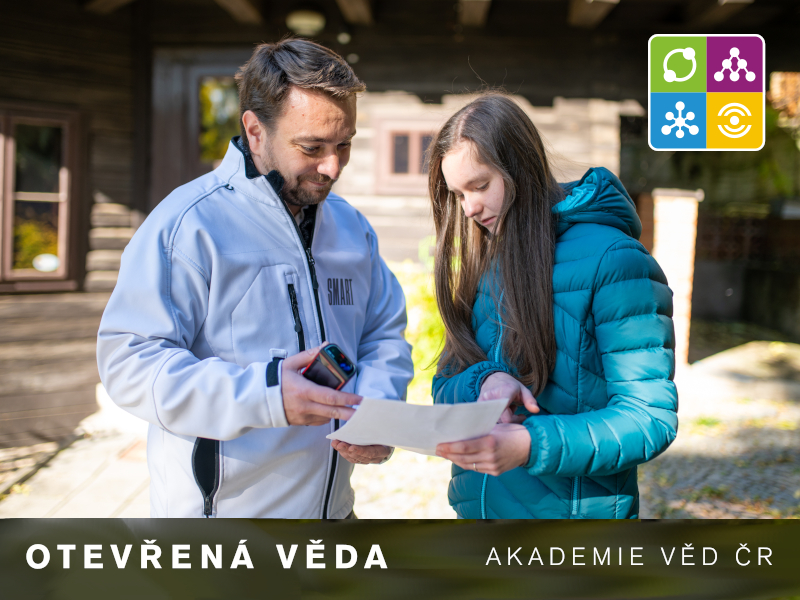Geography wins!
The Institute of Geonics has achieved great success in this year's Open science contest, which is organized annually by the Czech Academy of Sciences. In the Abiotic Nature category, student Magdalena Musilova from Gymnazium Blansko won 1st place in the final presentation of the results of research internships with the topic of Tactical Urbanism and Barrier Mapping in the City of Brno. Her research took place throughout the year at the Department of environmental geography under the expert guidance of RNDr. Jakub Trojan, MSc, Ph.D. This success is extremely valuable because there is very intense competition between 'Abiotic Nature' research fields such as physics, nanotechnology and astronomy. Therefore, without exaggeration, this victory can be described as a historical success of geography!
Barrier/barrier-free space and tactical urbanism is one of the long-term research topics of the Department of environmental geography, which is, among other things, the subject of the TACR Eta applied social science research project in cooperation with Masaryk University. Dr. Jakub Trojan was very pleased with the result of his student: “I am completely excited about Magda's result in such a competition. For Magda, it is a sensational success, a great honor and reward. She is an extremely honest, hardworking, and at the same time very modest student. Her energetic approach to the internship helped us significantly with the project. The hours and days she devoted to her work beyond her duties were positively reflected not only in the results of our research, but also in the presentation at the final student conference. I am convinced that with this approach, Magda got to know and tried something new that she enjoyed, excited, and will be useful to her in the future. I believe that we will meet Magda again in the framework of further cooperation - whether it is another scientific internship, project or a social opportunity. Our cooperation was really excellent“. And the director of the Institute of Geonics, Ing. Josef Foldyna, CSc., didn't hide his joy either: “This result made me very happy, we have something to be proud of. It turns out that the research topics we are dealing with here have the potential to reach promising high school students. Personally, I consider it necessary for us to be able to make science accessible to young people - to arouse a desire for knowledge and to motivate them for future scientific work can only pay off for us in the future. I cordially congratulate to Magda Musilova and dr. Trojan and I believe that their success will encourage other colleagues from the Institute to get involved in the Open science project“.
The Open science initiative is organized by the Czech Academy of Sciences. Its purpose is to involve active and talented high school students in scientific research, to inspire and show them the possibilities they can devote to in their future professional life. Cooperation between research institutes and high school students takes the form of annual internships, ending with a contest in which all the students present their projects. This happens in three categories: Living Nature, Abiotic Nature and Social Sciences.
The importance of M. Musilova's research is also evidenced by the fact that the results of her internship will be part of the forthcoming publication Geography of Barriers: Examples of Good Barrier-Free Implementations. The book will be published at the end of 2021 in cooperation with Masaryk University and the Institute of Geonics. The publication should provide a professional basis for all interested parties who want to make public space accessible to people with disabilities. And what does the student herself see as the greatest benefit of her internship? “We tried to find and show the way how and what to do so that people who do not have it easy in life reach the places they need more easily. The next step is now for the city of Brno to bring this path to life. I believe that we will inspire other municipalities and cities as well. I am very glad that I was able to be the part of such a research team“, says Magdalena Musilova.





